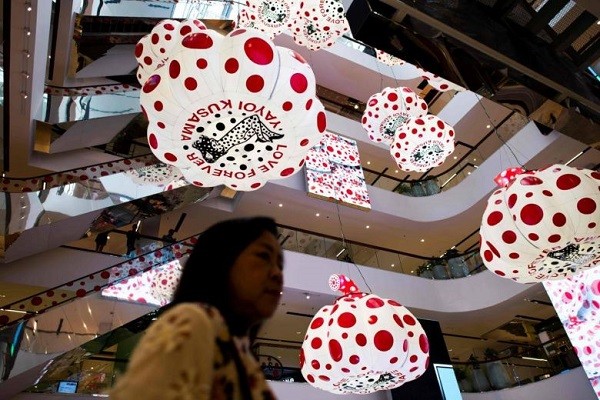Migrants, sex workers take pride of place in Bangkok art festival

BANGKOK - Sex workers and migrant labourers feature prominently in an art festival in Bangkok, which features local and international artists tackling issues that the artistic director says are otherwise ignored in the city.
The inaugural Bangkok Art Biennale (BAB), which runs until February, features 75 exhibits in 20 venues that include the city's ancient temples, luxury hotels and malls.
For the theme, Beyond Bliss, several artists chose social and environmental issues, said Apinan Poshyananda, the artistic director.
"These are often collateral in our pursuit of bliss," he said.
"This is why we decided to turn the entire city into a giant venue, so we could make it accessible to everyone, get everyone to think about it," he told the Thomson Reuters Foundation.
One of those issues is migrant workers, who number more than 3 million in Thailand, according to the International Organisation for Migration.
Rights groups say there are many more, working largely in risky, low-paid jobs such as construction and in the fishing and seafood industries, where abuse is common.
A large bamboo sculpture by Sornchai Phongsa - who is the son of illegal migrant workers from Myanmar - is titled Alien Capital, and was built by illegal migrant workers.
"The work is a comment on how Bangkok thrives on migrant workers, yet the workers themselves are invisible and silent,"said Poshyananda.
"This work gives them a voice." Firoz Mahmud also addresses migration with his stylised photographs of Bangladeshis in large green glasses seeing a better life in Thailand.
Thai artist Imhathai Suwatthanasilp's "No More Sewing Machine" installation features parts of sewing machines wrapped in the hair of sex workers in the northern city of Chiang Mai.
"It ridicules society's notion that sex workers can be rehabilitated by teaching them sewing," said Poshyananda.
"Why must that be the only option?"
Another Thai artist, Chumpon Apisuk, tackles the stigma that sex workers face, with a 10-minute video featuring female and transgender sex workers in Chiang Mai talking about their dreams.
Pueng, who works in a massage parlour, says she would like to build a home for her family and have her own grocery shop.
Apo, a bar girl, says she dream of owning an airline, because "it looks good, and people will see me as a smart woman".
The video seeks to "build up confidence of sex workers, and is a way for them to voice their pride," said Chumpon.
Thailand has more than 123,530 sex workers, according to a 2014 report by the UN agency for HIV/Aids.
Although prostitution is illegal, it is tolerated, with visitors to the country seeking out its go-go bars and "soapy"massages as much as its white-sand beaches and gilded Buddhist temples.
"The sex industry is a big business that brings in tourists, and helps the workers support their families," said Poshyananda.
"Yet we stigmatise them and dehumanise them. Perhaps this will open our eyes to their lives and their dreams."